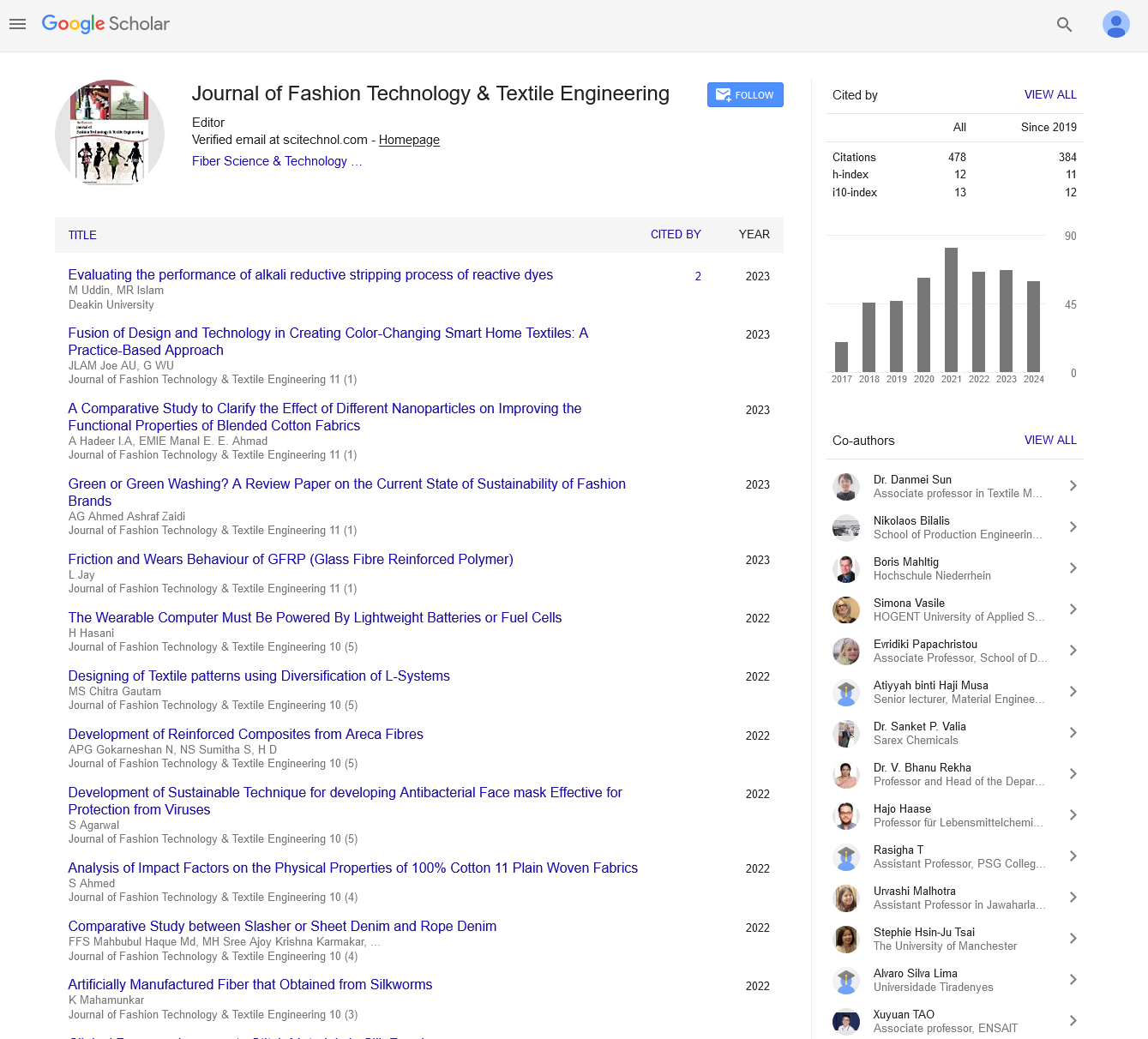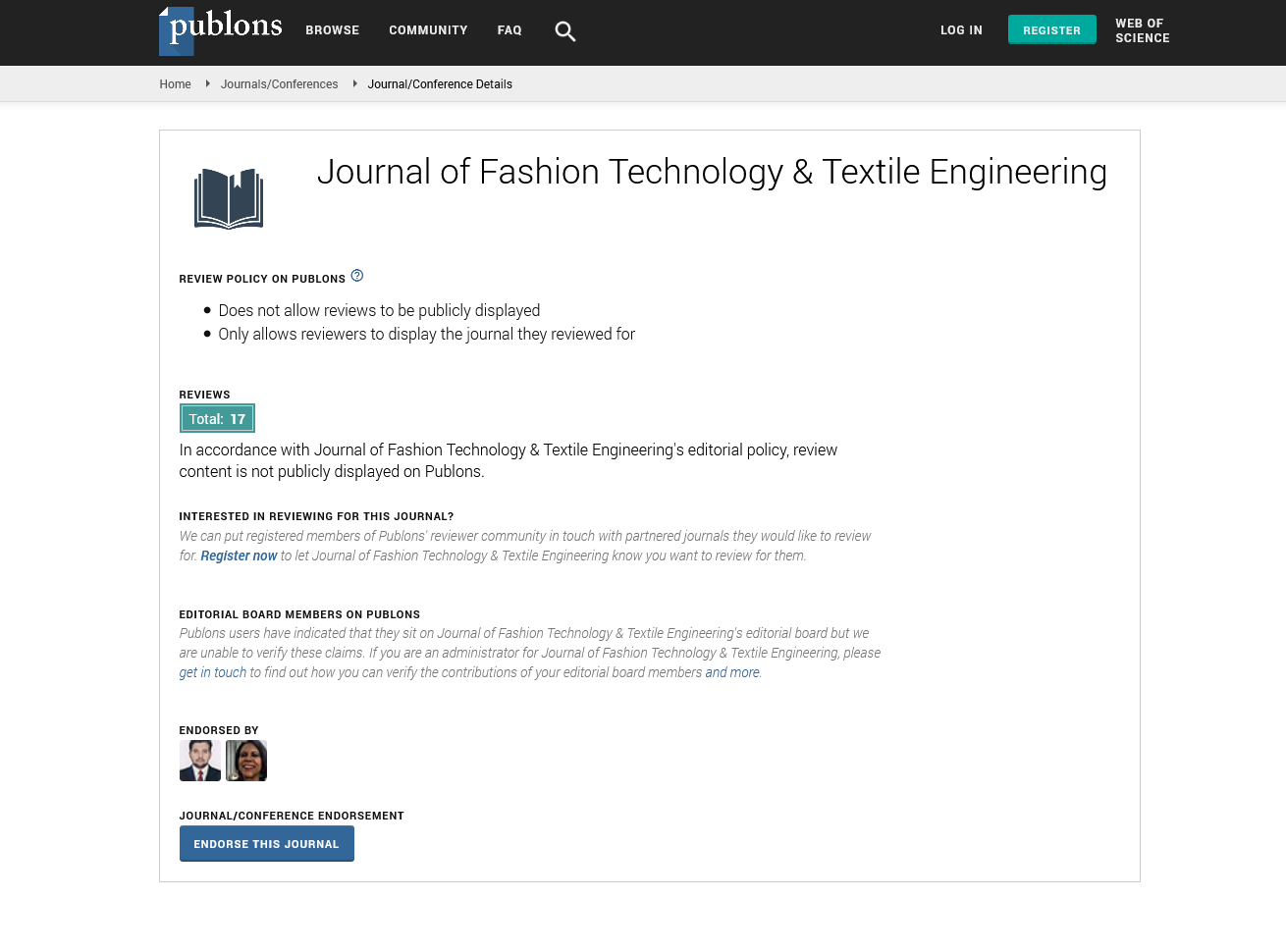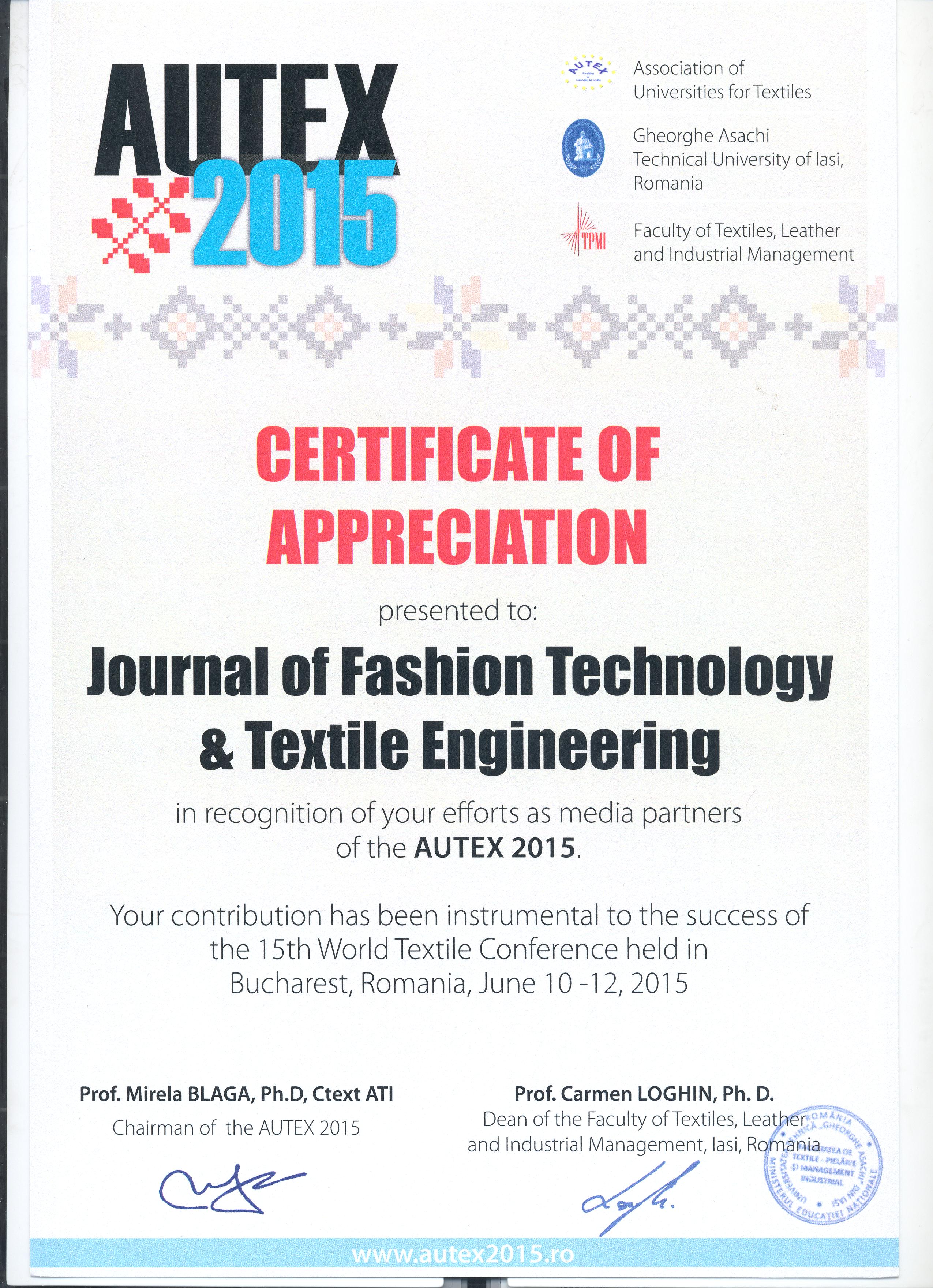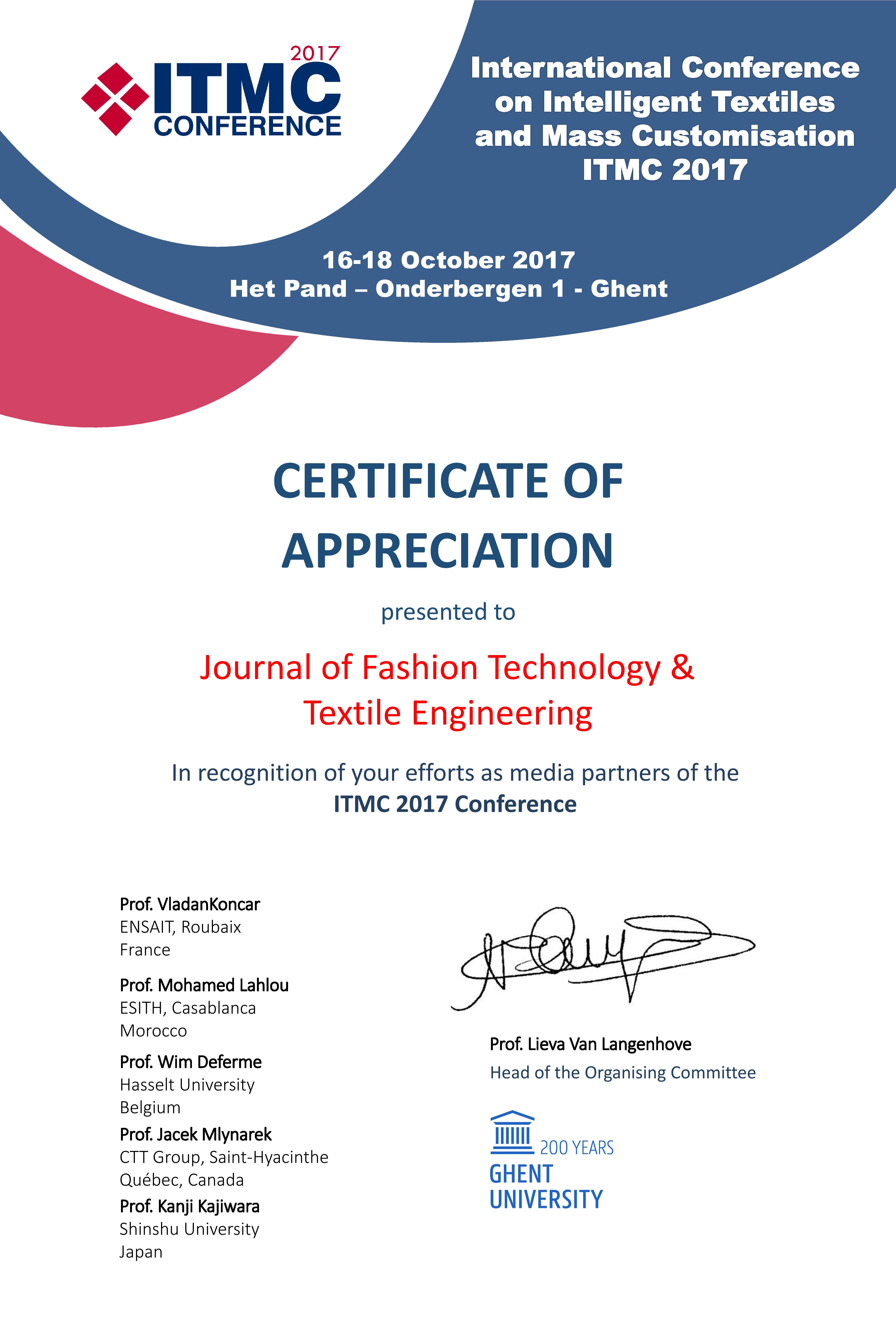Research Article, J Fashion Technol Textile Vol: 5 Issue: 4
Taiwanese Millennials Perception of Green Advertising in the Context of Outdoor Apparel in Taipei
Alison Anne Falk1 and Jocelyn HC Chen2*
1MA Brand and Fashion Management, Fu Jen Catholic University, Taiwan
2Department of Textiles and Clothing, Fu Jen Catholic University, Taiwan
*Corresponding Author : Jocelyn HC Chen, PhD
Associate Professor, Department of Textiles and Clothing, Fu Jen Catholic University, No. 510, Zhongzheng Road, Xin Zhuang District, New Taipei City 24205, Taiwan
Tel: 886-(0)2-2905-211120
Fax: 886-(0)2-2908-6223
E-mail: jocechen@mail.fju.edu.tw
Received: August 22, 2017 Accepted: September 04, 2017 Published: September 08, 2017
Citation: Falk AA, Chen JHC (2017) Taiwanese Millennials’ Perception of Green Advertising in the Context of Outdoor Apparel in Taipei. J Fashion Technol Textile Eng 5:4. doi:10.4172/2329-9568.1000160
Abstract
Objective: This research was developed to discover the environmental concerns, the consumption behavior and knowledge of green washing of Taiwanese millennial consumers living in Taipei. It was inspired by the increasing concerns surrounding climate change.
Methods: A questionnaire was given to a minimum of 100 Taiwanese consumers at random and analyzed using a regression to measure the degree of awareness and a 2 × 2 × 2 Factorial Design was utilized to assess perceived deception, ethical judgment, attitude towards the advertisement, attitude towards the brand [1].
Results: The data proved that knowledge and/or awareness of environmental issues to be insignificantly linked to the purchase of eco-friendly products. The data from the second study, which utilized a 2 × 2 × 2 factorial design highlighted this finding even further by proving that Taiwanese millennial consumers living in Taipei were not able to distinguish associative claims from substantive claims and are more favorable towards green advertisements from a lesser-known local brand utilizing a domestic environmental issue. Substantive claims were found to be slightly more favorable overall.
Conclusions: Being that Taiwanese millennial consumers are not able to strongly identify green washed ads from an authentic substantive claim a company is promoting, it is easy to assume that window-dressing the brand to emit environmentally friendly characteristics will produce the same effects as advertisements
promoting authentic substrative claims.
 Spanish
Spanish  Chinese
Chinese  Russian
Russian  German
German  French
French  Japanese
Japanese  Portuguese
Portuguese  Hindi
Hindi 


